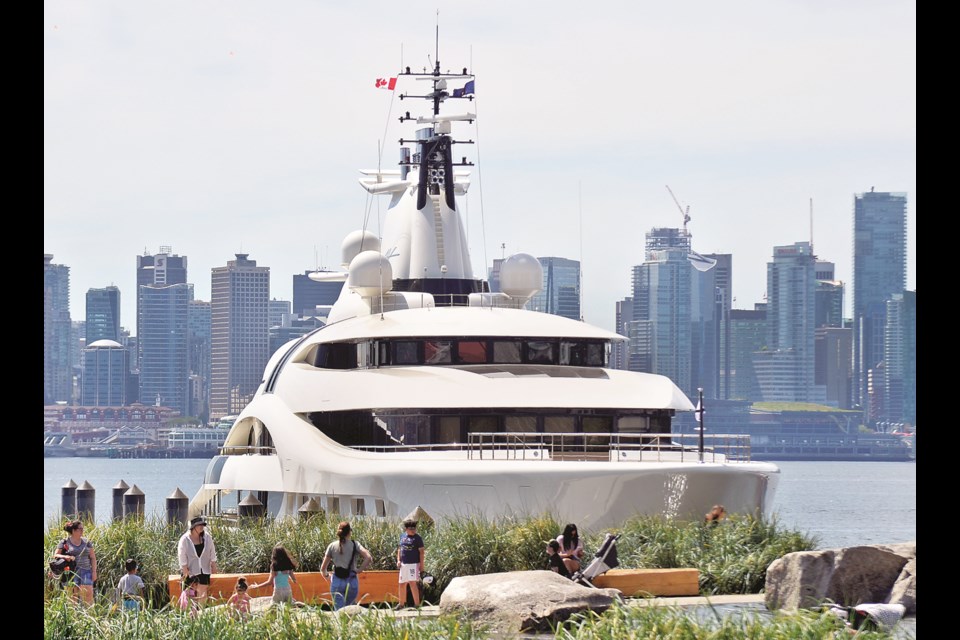It was a hot, dry July on the North Shore, according to official Environment Canada weather records – and more of the same is expected to continue in August.
Much of the past month on the North Shore was characterized by balmy summer temperatures, as has been the case for most of the South Coast.
West Vancouver set a daily temperature record on July 15, when the mercury shot up to 31.3 C, smashing a previous record of 28.5 C from 1979.
Temperatures in the evenings also tended to remain higher than usual, with a record set July 4 for the highest overnight temperature on that date in West Vancouver of 17.3 degrees.
But the more concerning weather statistic is how dry July was.
Precipitation in North Vancouver was about one-half the usual amount – 23 millimetres of rain fell last month compared to a more typical 47 mm. In West Vancouver, less than a third of the usual amount of rain fell last month – 31 mm compared to a usual 66 mm.
Almost all of that precipitation fell in one day – during a downpour on July 24 – which ironically also set a record for the most precipitation to fall on that date in West Vancouver. Over 26 mm of rain fell in 24 hours.
The month of July was dominated by high-pressure ridges, said Bobbi Sekhon, meteorologist for Environment Canada. The waters off the Pacific coast have also been warmer than usual, he said, which can influence the coastal climate.
Elsewhere in the province, five communities – including Comox, Vernon, Smithers, Dease Lake and Chetwynd – recorded their warmest July since records began.
Up ahead for August? More of the same, said Sekhon.
“We’re continuing on the same trend,” he said. “Above normal temperatures will be continuing.”
And for the next 10 days or so, “at this point we’re not seeing any signal of any precipitation heading our way.”
This month, the North Shore News and other Glacier Media papers in the Lower Mainland launched their own Weatherhood weather network for gathering hyper-local weather information.
Sensors installed on low-rise rooftops in city environments deliver real-time information, as well as forecasts for specific neighbourhoods. There are currently five Weatherhood weather sensors installed on the North Shore – four in North Vancouver and one in West Vancouver.
To check out the North Shore Weatherhood information, go nsnews.com/weather.



